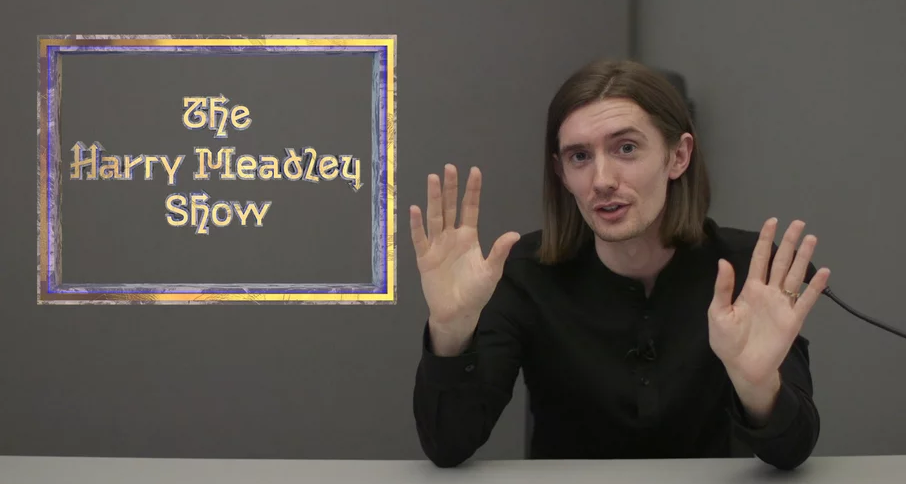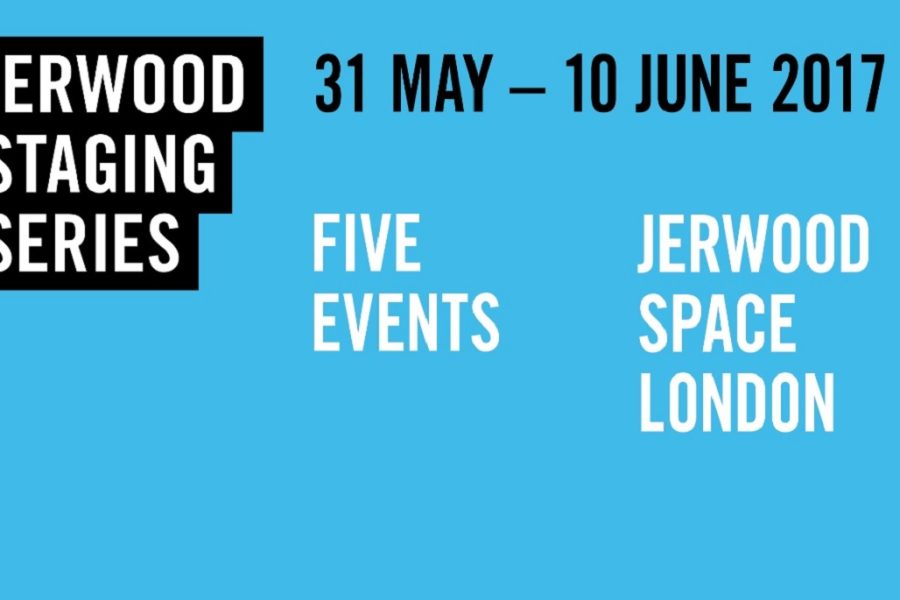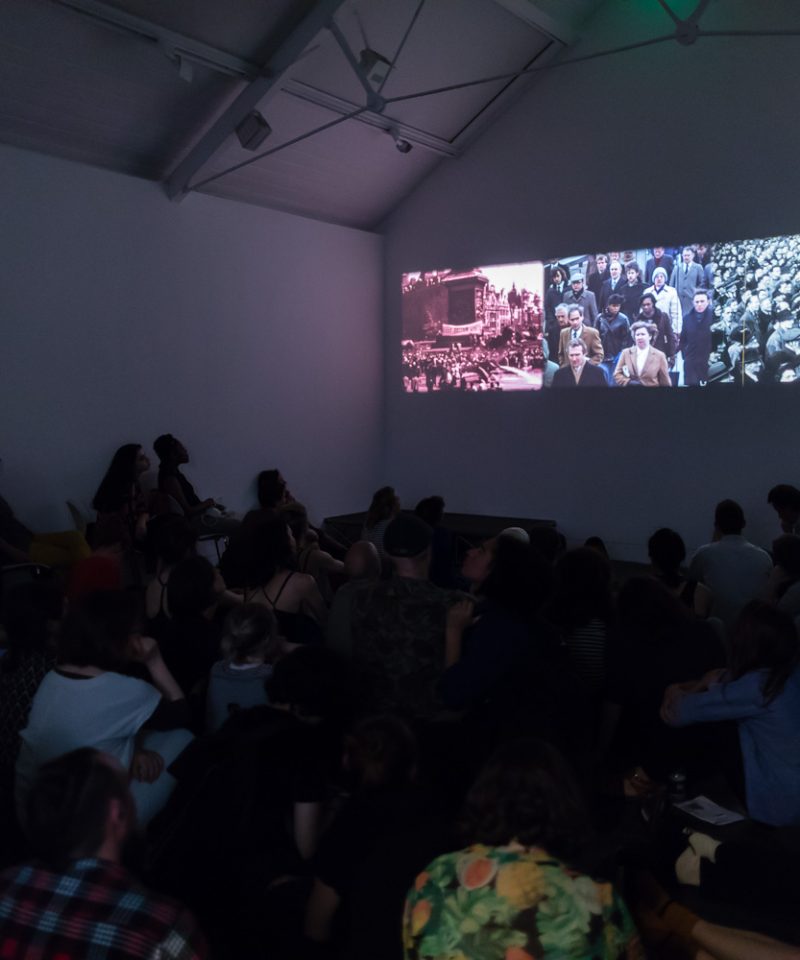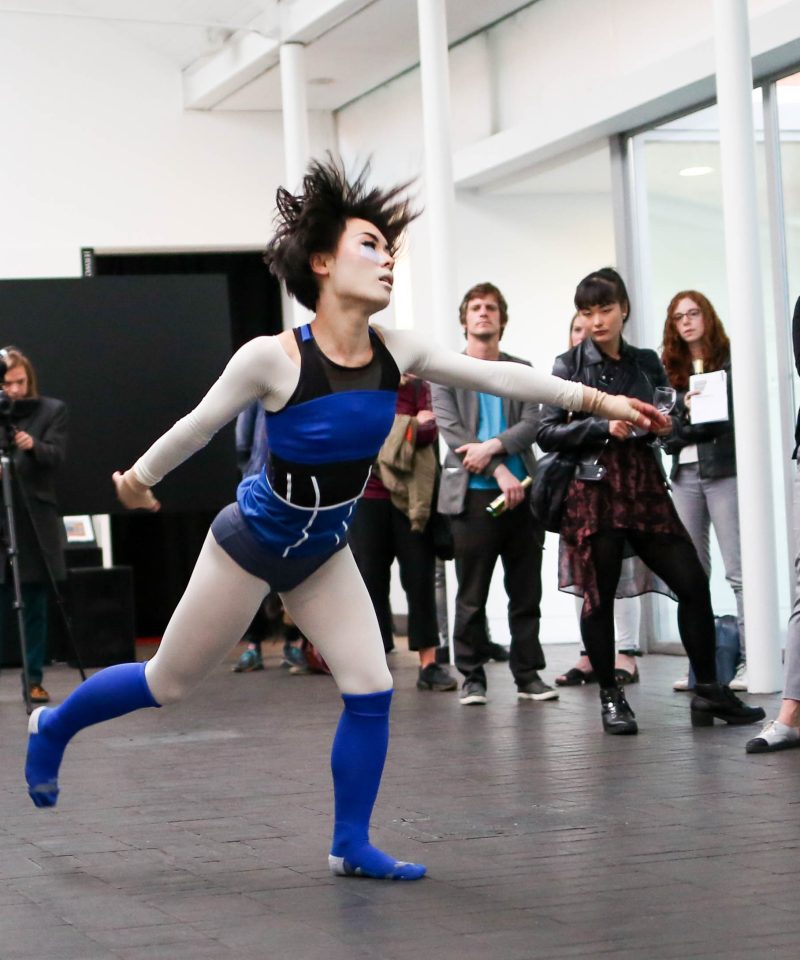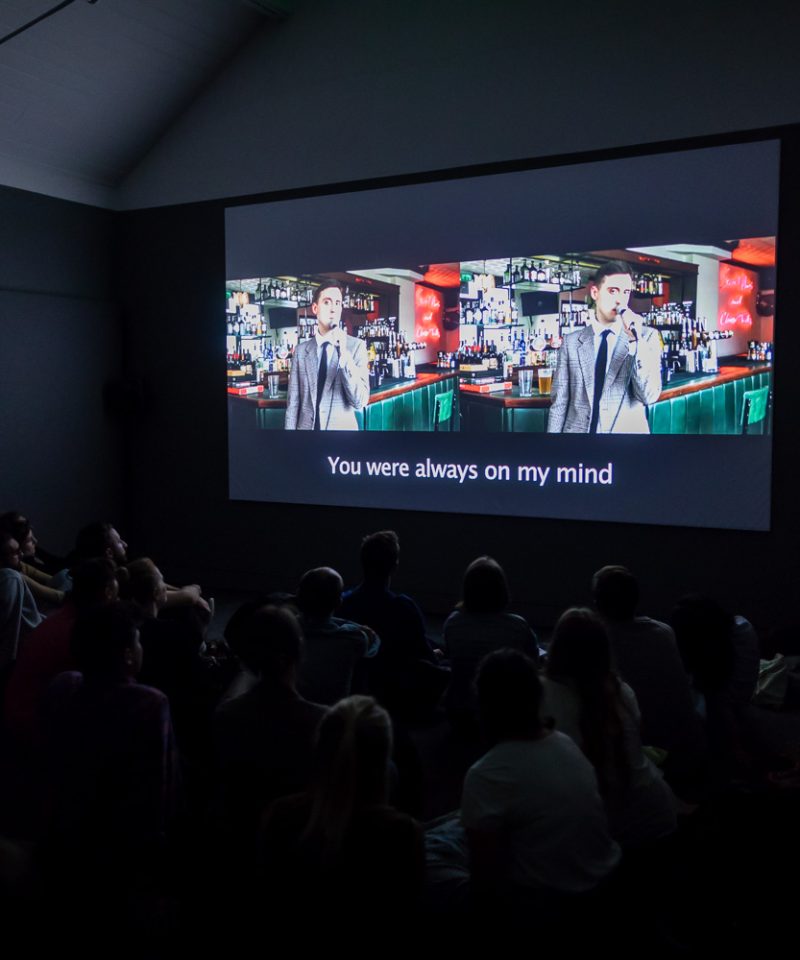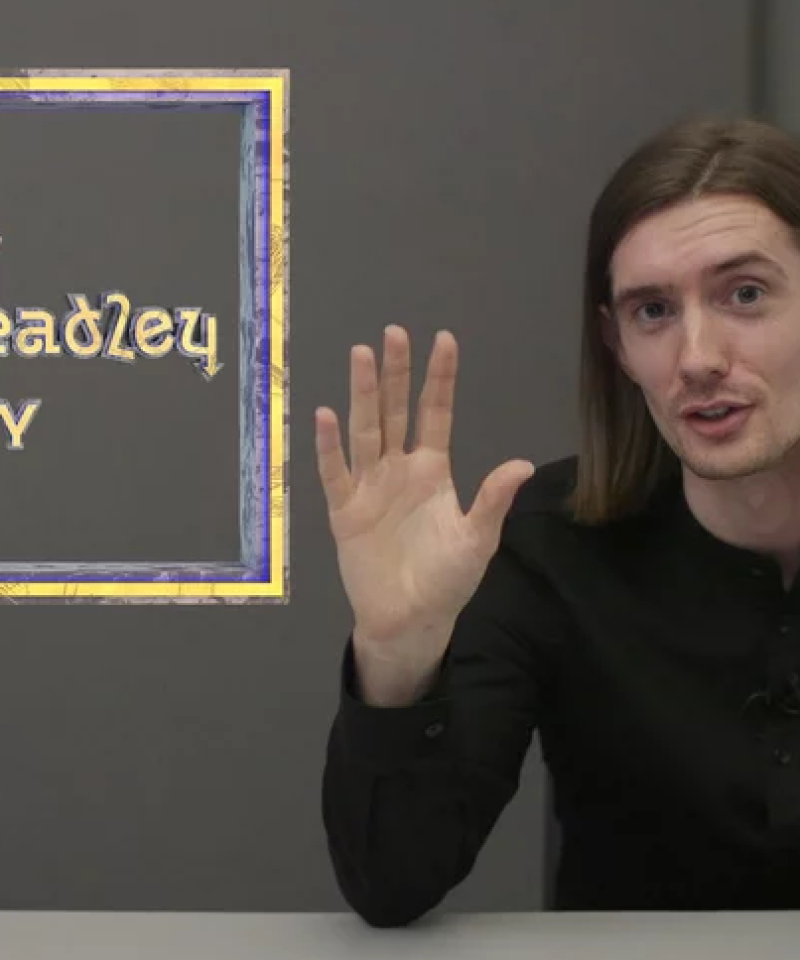I’m guessing that most people have seen Network, Sidney Lumet’s 1976 satire on the American media. At the beginning of the film, news anchorman Howard Beale promises to commit suicide live on next week’s show as a protest against his producers, who have just informed him he is to be stood down. Beale subsequently recants and is given one final slot to apologise for his outburst. Once on air, however, he delivers an impromptu tirade against the venal manipulativeness of the media. Ratings soar, Beale is kept on, hailed as a people’s philosopher, and television turns from a hyper-regulated mainstream platform into a more experimental medium, shaped according to his own iconoclastic fancy.
On the face of it, artist Harry Meadley is moving in the other direction. For a while now, Meadley has been reinventing the artist’s talk, a strategy that has already yielded Artists Talk [sic], an hour-long ‘stand-up comedy special’ shown as part of the 2016 Liverpool Biennial. The Harry Meadley Show continues in this vein, this time subjecting the artist’s ‘underground’ activities to the mainstream format of the chat show. Like Letterman, he faces the camera from behind a desk, images of past works digitally superimposed on one side, his studio audience at the Jerwood Space in London providing live reaction as he comments on their merits. Though there is a vague sense of his also addressing an audience at home, his delivery doesn’t aspire to the autocue slickness of television. The running order of his segments is well prepared, but his lines are improvised, his verbal style confessional, his attitude self-deprecating – as though tempering the difficulty of his ‘conceptual’ oeuvre with a pre-emptive appeal for our empathy. It is the social epiphenomena of art that is dealt with in the main. Indeed, many of the pieces themselves receive scant descriptive treatment as Meadley bypasses this in favour of the discussion they have elicited, particularly on social media. An account is given of how a 2012 piece, 100th Work – which entailed feeding gallery visitors with ten buckets of KFC – brought censure on Instagram from a faction of renegade art critics calling itself The White Pube, who outed Meadley as a ‘beta-bro’ artist. (According to a source in GQ magazine quoted by Meadley in The Harry Meadley Show, a beta-bro is a man who ‘tries desperately to posture [himself] as the underdoggish nice guy’.) A spat ensued, migrating to Twitter, where it became enshrined as #KFCgate. Most artists would bury this news, but Meadley makes it central to his whole routine, not in order to defend himself, but, on the contrary, to admit that he is, indeed, nothing so much as a textbook ‘beta-bro’ – an admission that comes across as liberating, cathartic, even.[1] This is characteristic of his general approach. Though well-informed, he has no interest in appearing authoritative, only in diagnosing his true ‘condition’ as an artist, even if this means conceding membership of a pejorative social classification. He is manful enough to see that his own ego is worth combusting in order to bring the phenomenon to wider public attention. It’s this that makes his show compelling if sometimes uncomfortable viewing.
An avowed ‘artist of life’, Meadley is interested, not just in how artworks operate in a social context, but in the exigencies of their production. Some time is spent breaking down costs here. Graphs are featured, figures adduced. At one point, he pays his outstanding tax bill ‘live’ online, proud of his contribution to the Exchequer. The career trajectory from art student to artist, and from artist to art tutor, is also assessed, with predictably withering verdicts on the politics of educational establishments. The latter forms the basis of The Harry Meadley Show’s unexpected climax, which, while not quite rivalling the drama of Howard Beale’s fictional turn, has consequences for Meadley that are all-too real. But no plot-spoilers from me – and, I hope, no scrubbing forward to the end from you, Internet User.
The visual trappings of The Harry Meadley Show are, due to budgetary reasons, manifestly more threadbare than those of network television: the lighting doesn’t dazzle, there’s no house band, and no sense of a backstage writing team. Although he does begin with a ‘monologue’, it is not a succession of topical gags (à la Larry Sanders) but a blithe confession that because he is only being paid £500 for this, he will therefore exert himself proportionately to that fee, and no more. But there is a sidekick: his wife, Rachel, who as well as operating his visual aids, doubles up as the show’s only guest. Though equally affable, she is somewhat harder to read, neither sceptical nor approving of the material. Rachel emerges as a sort of neutral witness to her husband’s exploits, a connubial bystander pushed centre-stage, not just here in her capacity as technical assistant-plus-guest, but in her past role as a helper in making certain pieces. 24kg (2010), for example, involved sanding down a painted wall and bagging up the white dust as a consignment of fake cocaine. Mrs Meadley is shown seated naked at a trestle table, flanked by other naked women, Mr Meadley having insisted on nudity for the purposes of realism. The incorporation of his marriage into the artist’s talk (complete with wedding photos) feels significant. He becomes increasingly uxorious as his vehicle unfolds, his wedding elevated to the status of a work that, for him, knocks the rest of his oeuvre into a cocked hat.
Presiding over all this is the spirit of the martial artist Bruce Lee, whose philosophy Meadley cites as more influential than that of any visual artist, in particular Lee’s advice that you should try to do at least one thing every day, no matter how small, that leads you closer to your ultimate goal. Arguably, Meadley’s final act takes him there in one big jump. Watch The Harry Meadley Show to find out what that is. And remember: no scrubbing.
[1] For a more nuanced discussion of this and other classifications of the contemporary male, see Emily Rappaport’s entertaining article ‘Fuccbois, Beta Bros, Softboys, Man Children’ at: http://topicalcream.info/editorial/fuccbois-beta-bros-softboys-man-children/. I also direct the reader to Broad City, the US sitcom written by and starring Ilana Glazer and Abbi Jacobson, in which all four of Rappaport’s categories are well represented.
